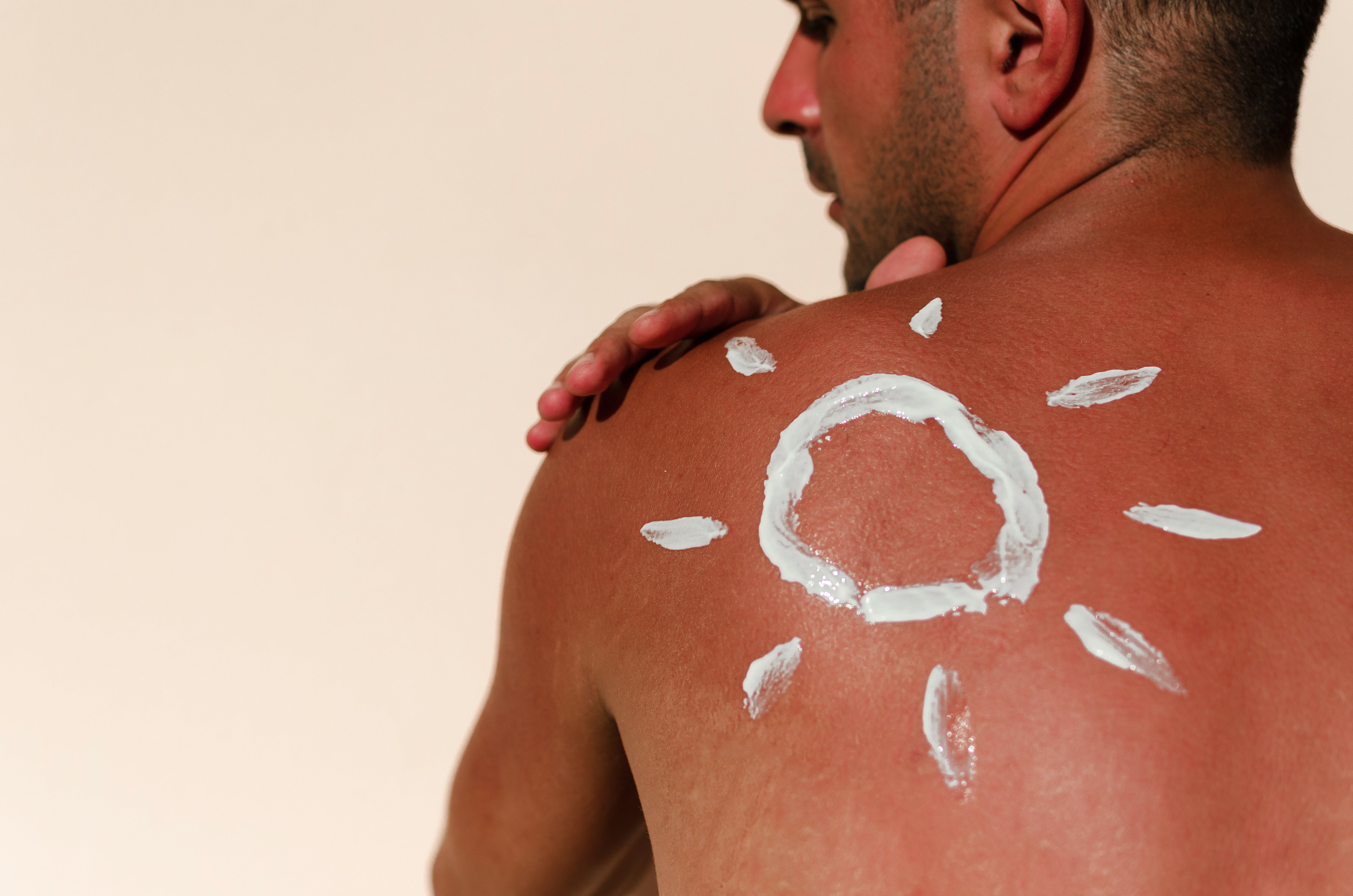Does Tanning Help Acne? Skincare Myths Debunked

People will do anything to get rid of troublesome acne. As such, it perhaps comes as no surprise that a number of myths have arisen concerning acne cures.
Let’s take a look at one of these so-called miracle remedies — tanning.
Tanning for Acne

The belief that tanning helps acne seems to stem from the fact that tanning makes your skin darker. As a result, the redness from any pimples isn’t as noticeable, allowing for a makeshift cure.
Can Tanning Actually Help Your Acne?

The science is pretty clear on this one. There’s no evidence that tanning can help with zits. The tan may temporarily help make the acne less noticeable, but it’s not a long-term solution for acne, and it may even cause other skin issues in the long term.
Sunlight and Your Breakouts
In fact, the sun may actually do more harm than good for your acne. For starters, sunlight can burn your skin, making the redness of the acne more apparent.
Additionally, the sun can damage your skin. With this damage, your immune system has to work overtime to heal, which makes it more difficult for pimples to clear up.
Do Tanning Beds Help Acne?

Tanning beds come with the same problems as the sun. It places an unnecessary strain on your immune system while worsening the overall aesthetic.
Some tanning salons may advertise that tanning can help cover up acne scars. It’s been proven that this isn’t actually the case. In fact, it can lead to more skin discoloration.
Tanning beds damage elastin and collagen, which are both necessary to help heal acne scars. They’re also necessary to keep your skin looking youthful in general, so if you like looking your age, you’re better off staying away from these devices.
Risks of Tanning to Help Acne
There are really no upsides when it comes to tanning and acne. And if you thought acne was bad, just wait until you have to deal with sunspots.
UV Rays
UV rays are the reason your skin appears red after spending too much in the sun. While a little is fine, too much can result in long-term damage. It damages the collagen in the skin, leading to premature wrinkles and fine lines.
Even worse, long-term exposure to UV rays can greatly increase your risk of developing skin cancer.
Vitamin D
You receive Vitamin D through direct contact with sunlight, which is a good thing. It causes many people to think it isn’t that big of a deal.
However, getting sufficient Vitamin D through sunlight isn’t efficient. You’re better off getting the nutrient through your diet. Some of the best foods to eat for Vitamin D include:
- Oily fish, such as sardines and salmon
- Egg yolks
- Liver
- Red meat
- Fortified foods, including some breakfast cereals
How to Actually Improve Your Skin

If you want to help any acne outbreaks, you should instead wear plenty of sunscreen when you go outside. It will prevent your skin from getting any redder, and overall, it will prevent the UV rays from damaging your skin further.
A little sunlight is fine. But if you plan on spending more than 15 minutes in direct sunlight, you should use sunscreen. Outside of that, you can try spending as much time as possible in the shade and wearing long-sleeve clothing.
You also want to practice adequate hygiene. That means showering once a day and no more. Taking multiple showers can lead to your skin drying out. And once a day, you should exfoliate.
And of course, drink plenty of water. It’s your best friend when it comes to great skin health.
References:
Kell, Nicole. “Can the Sun Cure Your Acne?” UT Austin, 4 Jun. 2019. https://sites.utexas.edu/think-twice/2019/06/04/can-the-sun-cure-your-acne/
“Ultraviolet (UV) Radiation.” American Cancer Society, 10 Jul. 2019. https://www.cancer.org/cancer/cancer-causes/radiation-exposure/uv-radiation.html

Leave a Comment